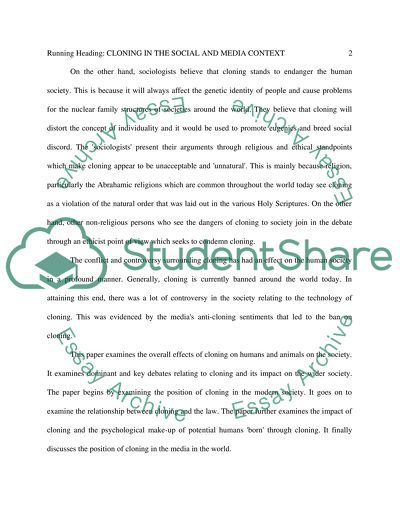Cite this document
(“Cloning in the social and media context Essay Example | Topics and Well Written Essays - 2750 words”, n.d.)
Retrieved from https://studentshare.org/sociology/1399432-the-technology-in-its-cultural-context-media
Retrieved from https://studentshare.org/sociology/1399432-the-technology-in-its-cultural-context-media
(Cloning in the Social and Media Context Essay Example | Topics and Well Written Essays - 2750 Words)
https://studentshare.org/sociology/1399432-the-technology-in-its-cultural-context-media.
https://studentshare.org/sociology/1399432-the-technology-in-its-cultural-context-media.
“Cloning in the Social and Media Context Essay Example | Topics and Well Written Essays - 2750 Words”, n.d. https://studentshare.org/sociology/1399432-the-technology-in-its-cultural-context-media.


